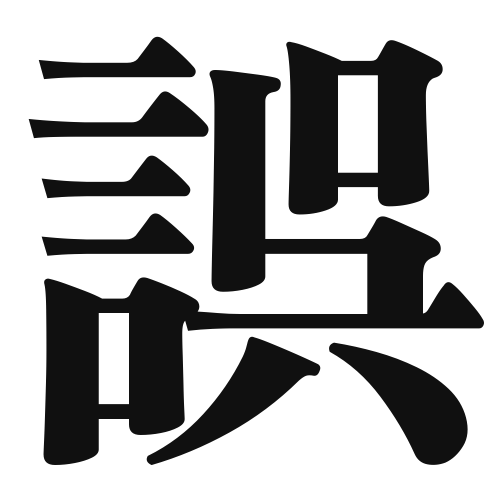1. Overview of Meaning
The kanji “誤” (go) means “to make a mistake” or “to err.” It is often used to indicate an error or misunderstanding in various contexts.
2. Formation and Radical
Formation of the Kanji: The kanji “誤” is a phonetic-ideographic character (形声文字). It combines the radical for “speech” (言) with a phonetic component that suggests its pronunciation.
Radical: The radical of “誤” is 言 (gen), which relates to words and speech, highlighting the connection between language and mistakes.
3. Examples of Usage
Common Words and Phrases: Some frequently used words that include “誤” are:
- 誤解 (gokai) – misunderstanding
- 誤り (ayamari) – error
Example Sentences in Daily Conversation:
- 彼は誤解しているようです。 (Kare wa gokai shite iru you desu.) – It seems he is misunderstanding.
- その誤りを訂正してください。 (Sono ayamari o teisei shite kudasai.) – Please correct that mistake.
4. Synonyms and Antonyms
Similar Kanji: A kanji with a similar meaning is “間違い” (machigai), which also means “mistake” but is more commonly used in everyday conversation.
Opposite Kanji: The opposite of “誤” is “正” (sei), which means “correct” or “right.”
5. Cultural and Historical Background
Relation to Japanese Culture: The concept of making mistakes is often discussed in Japanese culture, emphasizing the importance of learning from errors.
Proverbs and Idioms: One relevant proverb is “失敗は成功のもと” (shippai wa seikou no moto), which translates to “Failure is the foundation of success,” highlighting the value of mistakes in personal growth.
